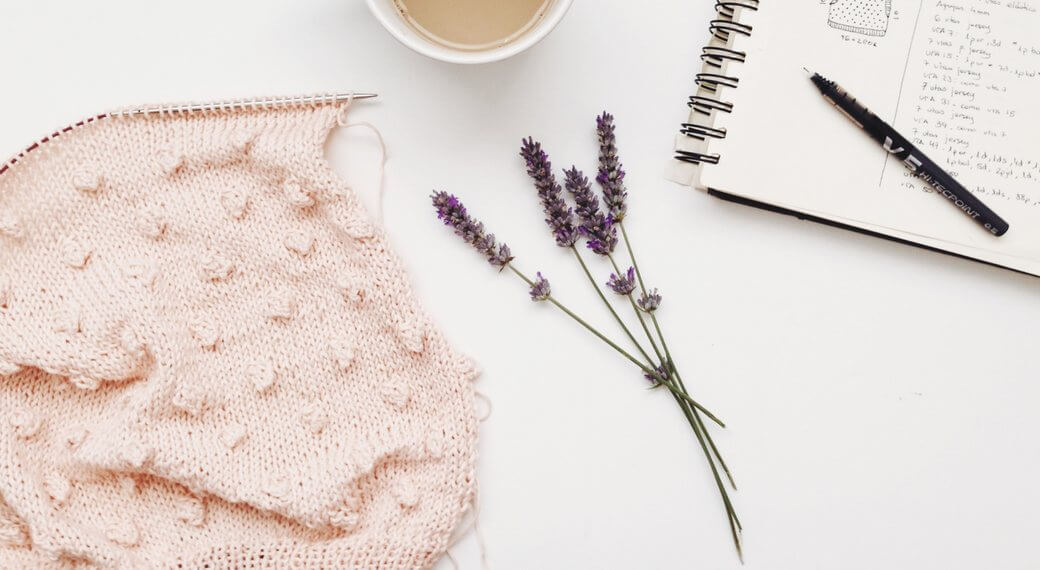If you create patterns or use them, you might be confused about the restriction at the bottom of the pattern that reads:
For personal use only
Are patterns protected by copyright? Can those restrictions hold up? That’s exactly what we’re going to cover in this week’s episode of Ask Kiff.
Watch the video | Read the show notes | Read the transcript
Show notes
- Grab your copy of the U.S. Copyright Office’s Compendium so you can understand which portions are protected by copyright (Chapter 900 talks about patterns and how-to books)
- In this post, learn how to create contracts with your website visitors using a checkbox
It can be overwhelming to register your copyrights

Learn to confidently register your copyrights with the U.S. Copyright Office…even if you have tried (and given up) before!
Get access to an in-depth course guiding you step-by-step and screen-by-screen through the process of registering your copyright with the U.S. Copyright Office. You’ll go from not knowing what you are going to register to having a strategy for future registrations.
And if you get stuck, you’ll have our 24/7 online community to help you out!
Transcript
This is my current knitting project. I’m working on a hat for my sister.
If your a knitter, crocheter, or sewer, or follow pretty much any pattern, you’ve probably seen those restrictions at the bottom:
- for personal use only
- not for commercial use
These restrictions often make me sad because I know as a lawyer that there are functioning more as a scare tactic. And not something that actually enforceable.
So if you create something from patterns or you’re a pattern designer, you’re not going to want to miss this week’s episode of Ask Kiff.
Hi, I’m Kiffanie Stahle, founder of the artist’s J.D. A place designed to add ease to the legalese of running your creative business.
This week we are answering a question from Victoria in Massachusetts. Victoria asks,
Can I copyright my patterns?
When you Google, “Can you copyright your patterns?” You’re gonna find a lot of conflicting information. So I can understand why a lot of people are confused by this topic.
In fact, I’ve even seen lawyers come down on different sides of this issue.
So this is my opinion.
Patterns can’t be copyrighted. There are parts of your pattern that could be copyrighted. And I’m going to get into that in just a minute. But the pattern itself is a mere a listing of steps, similar to a recipe. And those things can’t be protected by copyright.
It’s just a mere listing. And that mere listing is intended to help you create something. It’s intended to help you create that hat like I’m working on right now.
So as I mentioned, there might be parts of your pattern that are protected by copyright and there might be parts that aren’t.
That listing of what I do row-by-row that part is not protected by copyright.
However you’ve probably taken photos that illustrate the finished garment or the finished product, and those photos are protected by copyright. And that’s part of your pattern. Maybe you’ve got some storytelling going on to kind of help sell this pattern, that part could be protected by copyright.
The U.S. Copyright Office has something that’s called the Compendium. In the Compendium, it talks specifically about pattern and how-to books. I’ll give you the link to the Compendium. (It’s in Chapter 900.)
In it, it confirms what I just said. That there are parts that do rise to the level of copyright protection and there are parts that don’t.
And so your pattern, the actual step by step portions of your pattern, aren’t protected by copyright. But the photo that you took of you wearing the hat, that’s protected by copyright.
So copyright is not going to help you to say that you can’t take my pattern, follow the instructions, and turn around and sell the finished garment.
So if you’re a pattern designer, you’re probably not too happy with me now.
So is there a way you could protect your pattern so that someone can’t go out and start selling the finished product from your pattern?
There’s one possible way that this can be done. And that’s through a contract.
So a contract needs three things to be valid.
- It needs an offer
- It needs an acceptance
- It needs an exchange of things of value
For those of you old enough like me to remember when we went to Office Depot to buy our software. And we bought a software package. And on the outside of it, it had this shrink wrap around it. That said by opening this package and by installing the software, you are agreeing to these terms.
We weren’t actually buying the software, we were buying a license to use the software.
So there is an argument that you could sell your patterns, not as an outright sale but sell them licensed with the certain restrictions.
To do that, you would have to have a checkbox that says, “I agree to these terms.”
I would need to know at the very outset that your pattern was only for personal use. And I would have to agree to that before I handed over money and got the pattern from you.
I want you to consider the practical aspects of it.
The person who is buying a pattern and the person who is buying the finished product are two different customers.
So by having someone to buy a pattern from you. And turn around and use it to sell their products to their customers, they’re not really taking a sale away from you.
Because the person who is buying the finished hat isn’t going to buy the pattern from you to knit it up themselves. Or to sew it up themselves.
They are the non-DIY-ers who don’t invest the time and money to make that thing themselves.
And so by having those kinds of restrictions on them. By having those kinds of licenses, you’re probably losing out on sale.
The second part of it is, are you actually going to go after anybody? Is it just a scare tactic? Is it something that you’re never going to enforce?
And if so, what’s the value of doing that?
So ultimately what I want you to consider is:
- Do I have a great business reason for doing this?
- Am I willing to step up and back this up? Hire an attorney, send cease and desist letters, do those kinds of things in order to enforce this restriction on the pattern?
If I’m willing to put these processes into place on the front-end to make sure I’m having a contract. And then on the back-end willing to enforce them.
And if not, I don’t really know what the value of doing that is.
That’s this week’s episode of Ask Kiff.
Next week, make sure you tune in when we’re going to talk about another topic related to this. And that’s what you can do with licensed fabric. What can you do with fabric with Disney, Harry Potter, NFL logos on it. So make sure you tune in for that episode.
It can be overwhelming to register your copyrights

Learn to confidently register your copyrights with the U.S. Copyright Office…even if you have tried (and given up) before!
Get access to an in-depth course guiding you step-by-step and screen-by-screen through the process of registering your copyright with the U.S. Copyright Office. You’ll go from not knowing what you are going to register to having a strategy for future registrations.
And if you get stuck, you’ll have our 24/7 online community to help you out!
Do you still have questions?
No shame in that! One of the perks of membership in the artist’s Courtyard is a 24/7 private online community to ask your questions and get my answer (and insights from other creatives). Already a member? Ask your question! Not a member yet? Join us inside the artist’s Courtyard for $45/month!

Hi! I’m Kiff! I’m your friendly legal eagle (and licensed attorney).
My goal is to add ease to the legalese. And because I think basic legal resources should be available to every creative, I create a lot of free content.
If I’ve created something that has helped inject a little ease into your creative business and you would like to say “thank you”, you can make a contribution here.
If you’d like to hear more from me, I’d love to pop into your inbox every Friday morning to share additional ways to cut through the red tape and inject a little ease.
Get tips from your friendly legal eagle in your inbox…
Your privacy is important to us. Learn how we protect it here.

